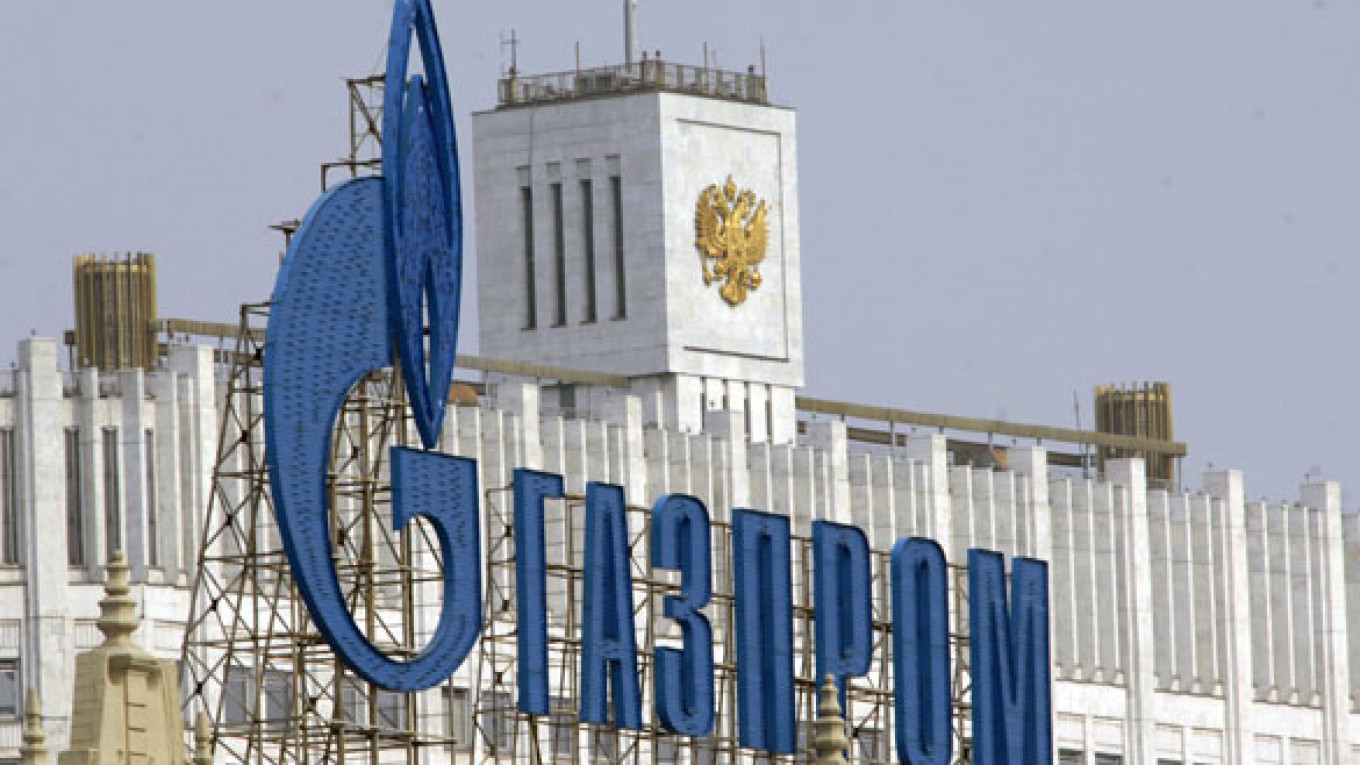Gazprom could again increase its investment program for this year in the next few months, a senior executive said Wednesday.
Gazprom's investment and construction department chief Yaroslav Golko didn't say how much the spending could go up when he made the statement at a news conference.
The company increased its plans for investment spending to 843 billion rubles ($27 billion) from 777 billion rubles, or by 8.5 percent, recently on the back of positive first-quarter results.
"Based on the first-half results, the board of directors may revise it upward again in August or September," he said at a news conference.
State-controlled Gazprom reaped the most profit among global public energy companies last year, 1.3 trillion rubles by International Accounting Standards.
Its board recommended doubling the total dividend payout to 211 billion rubles for shareholders to vote on the proposal next month. Under another proposal, payouts to board members will rise 4 percent.
Another Gazprom executive said the company expected an announcement of changes to its long-delayed Shtokman project at the St. Petersburg International Economic Forum next month.
The changes could affect the lineup of its partners, now France's Total and Norway's Statoil, and the products they want to produce, said Gazprom deputy chief Vitaly Markelov.
"We expect a decision about the lineup and the implementation scheme," he said.
Statoil said earlier this spring that the partners sought to reduce the Arctic project's costs by at least 10 percent. As part of the effort, the companies involved are studying the idea of producing only liquefied gas, dropping the option of pipeline gas from the initial plan.
Gazprom is raising investment even though its sales aren't growing as quickly.
Gazprom could produce 1 percent less gas this year than it planned, said Vsevolod Cherepanov, the company's production department chief.
The plan is to lift 528.6 billion cubic meters of gas.
"After the first five months of the year we are seeing a downward trend," Cherepanov said at a news conference, adding that the company hasn't yet revised the plan.
Gazprom deputy chief Vitaly Markelov attributed the decline to weaker sales.
Even if the production goal falls short that much, Gazprom's output will be larger than last year's 513 bcm.
Markelov said the huge Bovanenkovskoye field, which is to start production this summer, will provide most of the company's capacity in the coming years.
In other news, Markelov said the first phase of the Gazprom-led Nord Stream pipeline to Germany under the Baltic Sea reached full capacity Tuesday, after beginning operation in November. The pipeline's first phase can carry 27.5 bcm per year, and the second phase of the same capacity is expected to start in October.
The Federal Anti-Monopoly Service said Gazprom's demands for pipe tenders could lead to squeezing competition on the market.
Gazprom looks to buy so many pipes in one tender that individual companies can't meet that quantity, Maxim Ovchinnikov, an official at the service, said Tuesday. That often requires middlemen that can aggregate the amounts sought by the company, he said.
The service plans to send a letter to Gazprom to ask the company to break up its tenders.
A Message from The Moscow Times:
Dear readers,
We are facing unprecedented challenges. Russia's Prosecutor General's Office has designated The Moscow Times as an "undesirable" organization, criminalizing our work and putting our staff at risk of prosecution. This follows our earlier unjust labeling as a "foreign agent."
These actions are direct attempts to silence independent journalism in Russia. The authorities claim our work "discredits the decisions of the Russian leadership." We see things differently: we strive to provide accurate, unbiased reporting on Russia.
We, the journalists of The Moscow Times, refuse to be silenced. But to continue our work, we need your help.
Your support, no matter how small, makes a world of difference. If you can, please support us monthly starting from just $2. It's quick to set up, and every contribution makes a significant impact.
By supporting The Moscow Times, you're defending open, independent journalism in the face of repression. Thank you for standing with us.
Remind me later.






